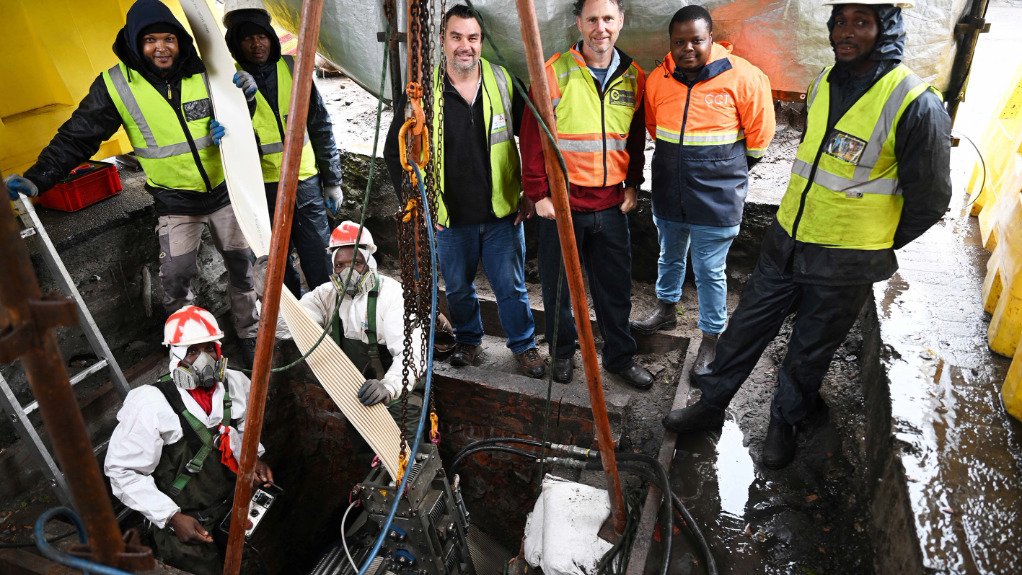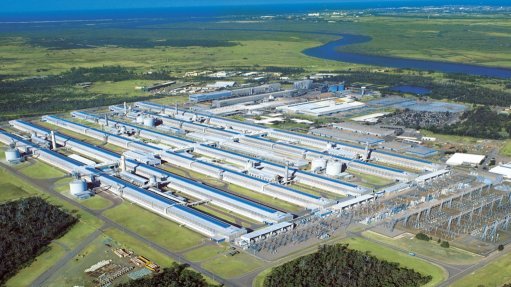City rehabilitating sewer pipelines


VITAL REHABILITATION The rehabilitation of the sewer will allow the City of Cape Town’s infrastructure to accommodate more sewage flow from the increasingly populated areas it services
Photo by City of Cape Town
The City of Cape Town’s Water and Sanitation Directorate has achieved significant progress with the rehabilitation of 28 km of bulk sewer pipelines – the country’s largest sewer upgrade of its kind.
This project aims to improve sanitation services for about 275 000 households in Athlone, Hanover Park, Lotus River, Ottery, Grass Park, Eagle Park, Pelican Park, and the surrounding areas.
To date, 25% – about 7 km – of this extensive, multi-phase sewer rehabilitation has been successfully completed. The remainder of the work is ongoing and is expected to be completed by 2025, should everything progress as planned.
This bulk sewer serves an estimated 8 000-ha catchment area across the Cape Flats. It also provides a critical link to transfer flow between two bulk wastewater catchment areas.
A significant portion of the inflow originates from the Raapenberg and Bridgetown pump stations, extending 14 km to the Cape Flats Wastewater Treatment Works.
The city’s Water and Sanitation MMC Councillor Zahid Badroodien explains that this will be one of the city’s flagship sewer rehabilitation projects, noting that the committee is pleased with the significant progress that has already been made.
Headds that the project will extend the lifespan of the infrastructure by an estimated 100 years, to the benefit of the city’s residents.
He states, “the city has invested R230-million for the current 2023/24 financial year and will invest another R263-million over the next two financial years. The aim is to build resilient sewer infrastructure through the sewer pipe replacement programme to provide dignified services to our communities.”
As the Cape Flats bulk sewers were originally built in the 1960s, residential and business areas have expanded significantly. Maintaining the integrity of this infrastructure is crucial for it to continue functioning effectively, benefiting the public for years to come.
This extensive rehabilitation is vital as the city’s infrastructure will be able to accommodate more sewage flow from the increasingly populated areas it services, futureproofing it for an ever-growing city.
Additionally, it will help to restore the structural integrity of the pipes, preventing leaks and groundwater ingress, so that the system can continue conveying sewage from properties to wastewater treatment works.
The rehabilitation will also protect the internal surfaces of the concrete pipes from more corrosion, which is naturally caused by hydrogen sulphide gas being released from oxidised sewage. The project will also rehabilitate existing sewer manholes.
The project uses trenchless technology, which ensures that work can continue with minimal disruptions to residents and businesses in the area, with the only visible sign that works of this magnitude are being carried out being the presence of staff and vehicles at manhole access points.
Further, the project has also deployed a robotic crawler to profile the pipeline. The crawler makes use of lasers to record the state of the pipe. Data is then sent to officials above ground who are able to determine exactly which method to use for rehabilitation.
There are varying trenchless methods available, however, with this project, spirally wound pipes (SWP) are being used. The SWP are especially imported from SWP Systems GmbH, in Germany, and meet the ASTM F1697-18 standard, which is guaranteed to last up to 100 years.
The lining consists of a single, continuous strip of polyvinyl chloride (PVC) pipe, which will be spirally wound into the existing pipeline using a winding machine, positioned at the base of an existing manhole or access chamber.
This process will create a single continuous PVC pipe in the existing host pipe. Once completed, the robotic crawler will be reused to ensure that the work has been completed in a satisfactory manner.
Article Enquiry
Email Article
Save Article
Feedback
To advertise email advertising@creamermedia.co.za or click here
Press Office
Announcements
What's On
Subscribe to improve your user experience...
Option 1 (equivalent of R125 a month):
Receive a weekly copy of Creamer Media's Engineering News & Mining Weekly magazine
(print copy for those in South Africa and e-magazine for those outside of South Africa)
Receive daily email newsletters
Access to full search results
Access archive of magazine back copies
Access to Projects in Progress
Access to ONE Research Report of your choice in PDF format
Option 2 (equivalent of R375 a month):
All benefits from Option 1
PLUS
Access to Creamer Media's Research Channel Africa for ALL Research Reports, in PDF format, on various industrial and mining sectors
including Electricity; Water; Energy Transition; Hydrogen; Roads, Rail and Ports; Coal; Gold; Platinum; Battery Metals; etc.
Already a subscriber?
Forgotten your password?
Receive weekly copy of Creamer Media's Engineering News & Mining Weekly magazine (print copy for those in South Africa and e-magazine for those outside of South Africa)
➕
Recieve daily email newsletters
➕
Access to full search results
➕
Access archive of magazine back copies
➕
Access to Projects in Progress
➕
Access to ONE Research Report of your choice in PDF format
RESEARCH CHANNEL AFRICA
R4500 (equivalent of R375 a month)
SUBSCRIBEAll benefits from Option 1
➕
Access to Creamer Media's Research Channel Africa for ALL Research Reports on various industrial and mining sectors, in PDF format, including on:
Electricity
➕
Water
➕
Energy Transition
➕
Hydrogen
➕
Roads, Rail and Ports
➕
Coal
➕
Gold
➕
Platinum
➕
Battery Metals
➕
etc.
Receive all benefits from Option 1 or Option 2 delivered to numerous people at your company
➕
Multiple User names and Passwords for simultaneous log-ins
➕
Intranet integration access to all in your organisation



















